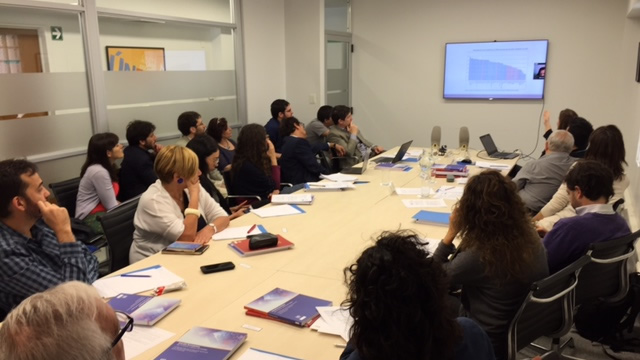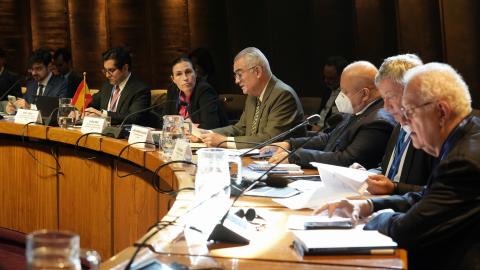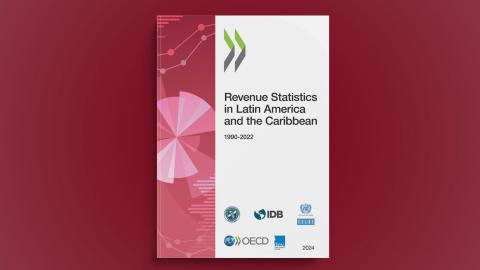Press Release
The Office of the Economic Commission for Latin America and the Caribbean (ECLAC) in Buenos Aires organized two seminars this quarter on macroeconomics and development, with participation by representatives from international organizations, central bank officials from Argentina and Brazil, and academic and private-sector experts.
In the first seminar-workshop (Productive Structure, Institutions and Macroeconomic Dynamics in Latin America), held September 1-2, participants debated the specific ways in which financialization plays out in the region: where the great capital influx that has entered the region since 2010 has been channeled, and whether this trend constitutes an obstacle or a bridge in the process of structural change (productive diversification with social inclusion) to which Latin America should aspire.
The seminar was composed of four blocks. The first presented the financialization phenomenon from a global perspective, citing the most extensive definitions and studies carried out for developed countries. The second and third blocks analyzed some specific dimensions of this phenomenon in Latin America, focusing on the non-financial private sector as a unit of analysis.
Finally, in the fourth block of the seminar two studies were presented that show the impact of the global financial cycle on countries in the region, along with the different policy tools that have been used to mitigate its negative effects.
The second seminar-workshop (Functional Income Distribution: Trends and Recent Debates), held on November 11, was devoted to analyzing the recent evolution of functional income distribution, a variable that had lost appeal in the context of income distribution analyses after decades of a predominant focus on inequality from a personal perspective.
While there has been a revitalization of conceptual, methodological studies and analysis in developed countries, the specificities that need to be incorporated upon analyzing this region are numerous. Taking account of them was a core objective of the seminar.
To this end, in the first session conceptual debates were raised on the factors associated with current functional income distribution trends in developed and developing countries, and their impact on economic growth, on different macroeconomic aggregates and on the social-employment situation.
The second session looked at studies that analyze income distribution trends for Latin America and also incorporate into the analysis some key methodological aspects, such as independent or self-employed worker income and the productive dimension. Finally, specific studies on Argentina, Brazil and Uruguay were presented.
Both seminars are part of the macroeconomics for development agenda that ECLAC has promoted in recent years, which attempts to link the analysis of short-term macroeconomic dynamics with problems of production and distribution, in keeping with ECLAC’s tradition.



